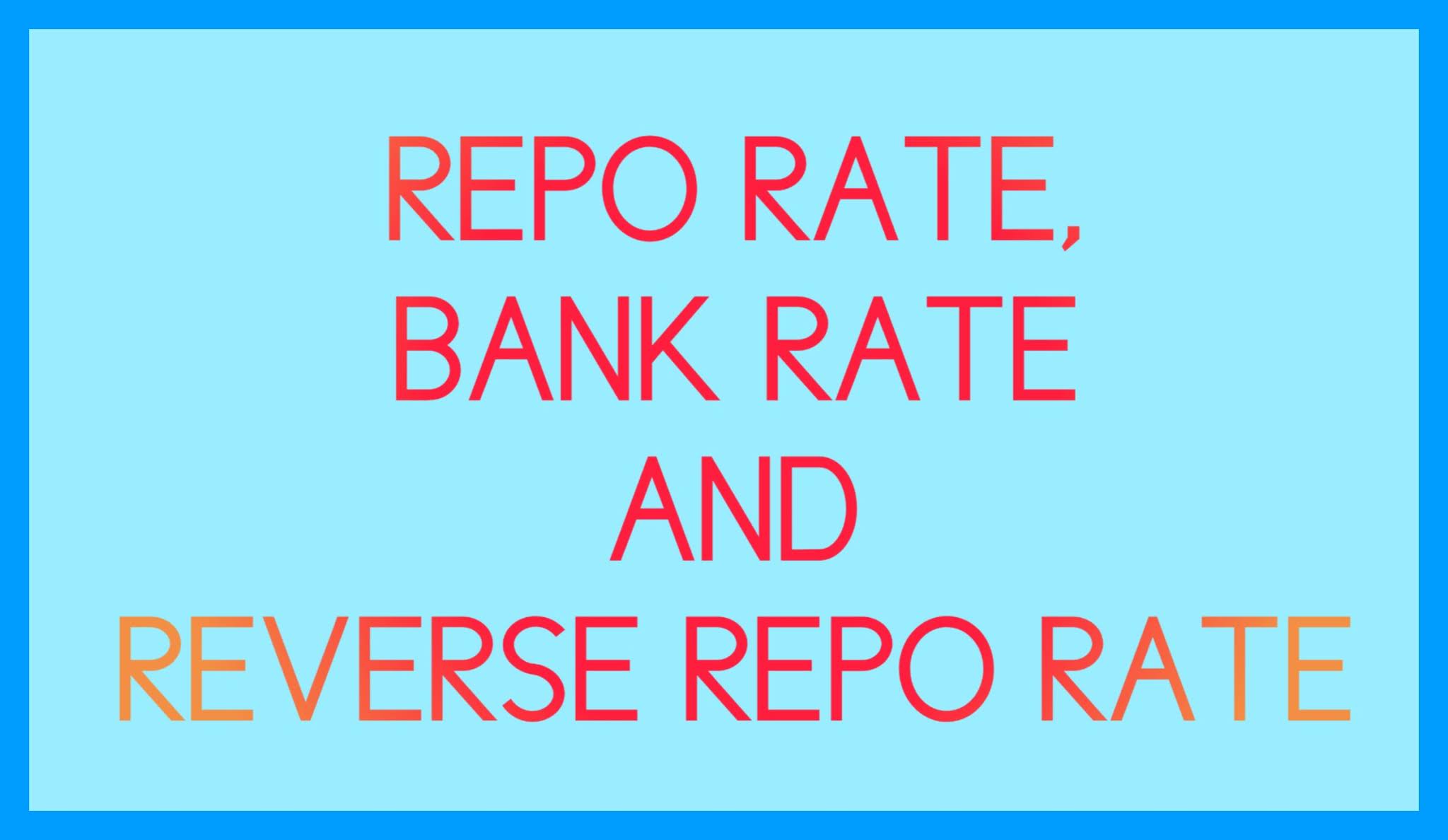 |
| Repo Rate, Bank Rate and Reverse Repo Rate |
Meaning of Repo Rate
- Repo rate is the rate at which the national bank of a nation (Reserve Bank of India) provides loans to the business(commercial) banks in case of any deficit of assets or shortage of cash. Repo rate is utilized by authorities of finance for controlling inflation.
- Repo Rate is the most crucial rate for the every person as well as commercial banks. Everything from interest rates on cash credited to returns on amounts deposited are affected by this essential rate set by the RBI. Repo Rate is the reason for increase or decrease in interest rates of loans such as home loan, vehicle loans and other different types of borrowing. All the changes on interest rates are depended on the change of Repo Rate. In the same way, banks' changes on the returns provided on saving deposits and fixed deposits depends on the Repo rate.
- Full form of Repo is 'Repurchasing Option' or 'Repurchase Agreement'.
What is Reverse Repo Rate?
- Meaning of Reverse Repo Rate is actually opposite of Repo Rate. Reverse Repo Rate is a rate at which RBI gets or borrows cash from banks when there is a surplus of liquidity in the market. The banks take advantage of it by getting interest on their cash with National Bank(RBI). RBI gives interest on the funds taken from commercial banks.
- Reverse Repo Rate is an instrument to control liquidity in the market and limiting the purchasing power of financial investors.
- During significant levels of inflation in the country, RBI increases the rate of reverse repo rate. It encourages commercial banks to hold more liquidity with RBI to get higher returns.
Repo rate is always higher than Reverse Repo rate, and the difference between these two is the income of RBI. If we talk about current rates, the currents Repo rate is 4.00 % at present (Sept. 2020) and current Reverse Repo Rate is 3.35 % at present (Sept. 2020)
Repo rate is decided at the meeting of RBI Governor and Monetary Policy Committee.
What is Bank Rate?
- The interest rate charged by the national bank (RBI) on the money given to commercial banks and other monetary institutes is called "Bank Rate". There is no repurchasing agreement made, no security sold or guarantee included in the case of Bank Rate. Commercial Banks take money from RBI and provide loans to their customers at higher rate. Current Bank Rate is 4.25 %.
How is a Bank Rate decided?
- The interest on loan is charged by a country's central monetary authority that controls the cash supply in the economy and banking area. This is generally done quarterly to control inflation and manage the nation's exchanging rates.
- At the point when a bank rate transforms it triggers a domino impact that impacts each circle of a nation's economy. As an example, prices in the stock exchanges change because of fluctuations in loan rates changes. Changes made in the bank rate influences customers as it impacts the rates at which they can take loans.








0 Comments
We encourage respectful and relevant comments. Thank You!
Emoji